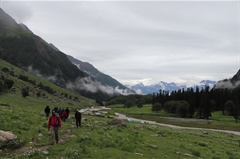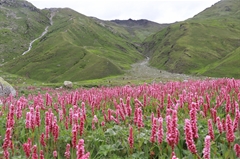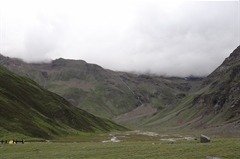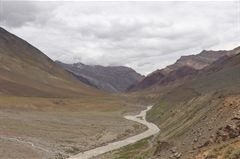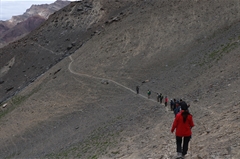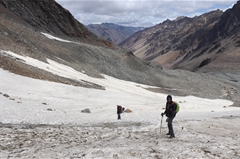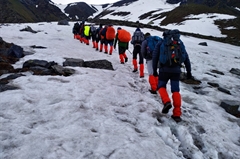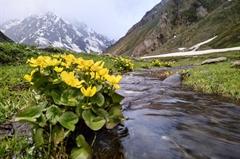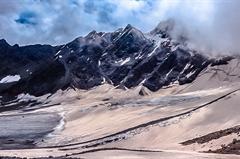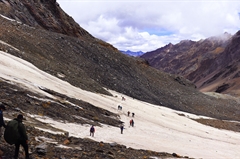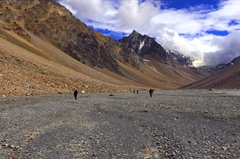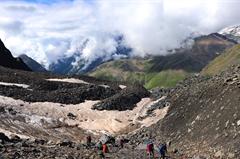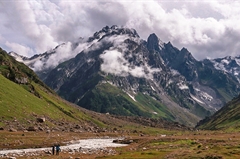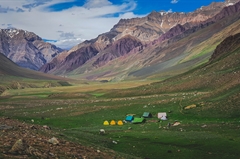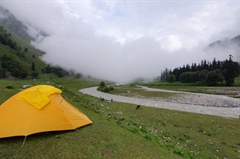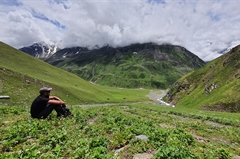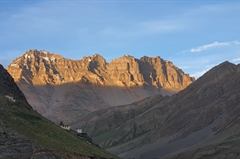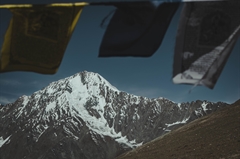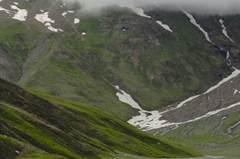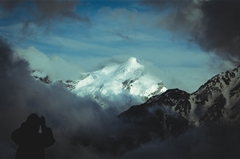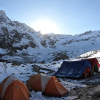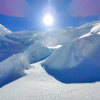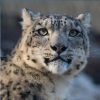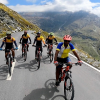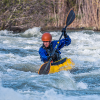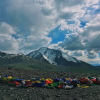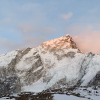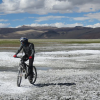Pin Bhaba Pass Trek
Your gateway to two contrasting worlds - Bhaba & Pin
Available Batches
Available Batches
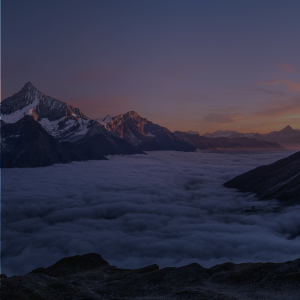



Brief Description
Brief Itinerary
Detailed Itinerary
Day 1
Make your way to Kafnu
Distance: 200 kms
Duration: 10-11 hours drive
Shimla (2,276 M) to Kafnu (2,350 M)
The trek starts from Kafnu, which is a charming hamlet in the Kinnaur district of Himachal Pradesh. If you need guidance on how to get to this high-altitude trek base, this article (How to reach Kafnu) might come handy.
If you have signed up with Bikat for a drive from Shimla to Kafnu, the day starts early. Everyone assembles at the meeting point by 7 in the morning so we can start our long drive up to Kafnu – a charming hamlet in the Kinnaur district of Himachal Pradesh. Although there’s nothing more on the agenda for today other than the 10-hour drive, it is better to leave as early as possible for two reasons:
One, so we can reach as early as possible and give our bodies enough rest for what’s coming the next day. And, two, roads on the mountains are unpredictable and it is always better to account for delays when we start. It is also better to reach before it gets dark.
The drive to Kafnu takes you on scenic mountain roads. The struggle of the soft round curves lulling you to sleep while you try to stay awake to soak in the views of the valley is real! With a cluster of brightly colored roofs every few seconds, the houses standing on narrow ledges on mountain faces and the patterns of step farming make the green landscape seem even more pleasing. The murky Sutlej River seems to camouflage itself in its rocky background but its forceful march forward, almost with a sense of resolve, gives it away.
The roads run narrow in many parts with a deep gorge on the other side leaving the area prone to rock fall and landslides; do not expect this to be a smooth ride. In some areas, the roads look like they are straight out of Need for Speed – smooth but narrow, under hanging boulders on top of a high mountain with a drop on the other side. A few patches in the last 20 kms of the drive are not concrete; these sections take a lot of time to navigate. After crossing the Wangtoo, bridge, which is the last 1 hour of the drive, the expansive views of Kinnaur Ranges make themselves available for your viewing. The mountains in this region are distinct. They are made up of large chunks of rocks resting one on top of the other – much like a stack of Jenga 15 minutes into the game.
At the end of the trail of this back-breaking journey will be a warm, wooden homestay with cozy rooms, waiting for you. Expect to reach latest by 7 PM.
After a small round of introductions, briefing about the trek and what to expect on it, everyone has dinner, settles into their rooms and calls it a day – latest by 10 PM.
If you have not opted for travel with Bikat from Shimla to Kafnu and are to meet the group directly at the head trail, check out the article on how to reach Kafnu (hyperlink article) for any assistance. Do plan your travel so as to reach Kafnu by 7 in the evening.
Day 2
Kafnu (2,350 M) to Mulling (3,250 M)
Distance: 10 kms
Duration: 5-6 hours
After a comforting stay for the night, in the midst of apple orchards right by the gurgling river, we start our trek at 9 AM to the morning sound of Himalayan birds. For the first three hours, we walk on a motorable road in the vicinity of the Janglik Range while a turquoise Bhaba river cascades alongside us, in the opposite direction. With its sharp turns and high falls, the river is a constant source of energy all through the trek today. It consistently cheers you on with its roaring sound.
Just 15 minutes into the trek, we start seeing thick layers of old snow forming snouts for the river. The challenge for today is the length of the walk. We will be gaining an altitude of close to 900 M over the span of 10 kms. This means it is going to be a long but steady incline with ample plain patches and patches of slight descend which give you enough time to get your heartbeat back to normal and maintain your pace.
Be prepared for multiple river crossings on bridges made by unsupported logs placed next to each other. If you have a fear of water, things could already start to get interesting for you. Within two hours of the trek, we would have already covered 400 M of the climb with just 500 M more to go. By 12 in the noon, we enter the door of the forest. Halfway through the day, we would be walking in the woods. Half an hour into our walk, we station ourselves under the shade of the sky-high trees to have the packed lunch we were given at the beginning of the day.
Post lunch, we continue on into the forest, navigating big boulders and mushy land. After an hour, we will encounter a patch of sharp descent where we lose a little height and by around 2:30 PM, we would have reached vast open meadows with the tallest ferns you have ever seen. It feels good to be under the sun once again after having walked through a forest with a closed canopy. The first campsite is not far from here. As you keep walking straight into the meadows and the land opens up around you even more, you can already see the tents far into the distance. The Bhaba river distributes itself in little streams all through the floor of the lush green meadows.
Expect to make it to the campsite by 3 PM. Mulling is a beautiful, bovine rich campsite with horses and trees all around your tents. Scattered colors paint the ground in the form of wild flowers and the river flows by your feet. It would serve you well to soak in the view since this campsite marks the end of the tree line for the trail.
After some stretching and briefing, you will be served hot soup/tea and then you are free to explore this magnificent landscape till dinner time at 07:30 PM. It is important to get some rest after dinner since this is your first night in a tent and at a higher altitude. Give your body some time to adapt to the change in external conditions so it is better able to carry you through to the last day.
Day 3
Mulling (3,250 M) to Kara (3,700 M)
Distance: 6.5 kms
Duration: 4-5 hours
Today is comparatively easy because the distance is almost half of yesterday.
There are two major challenges we will be encountering on the way. One is crossing over the forceful river which requires team work, a little technique and soaking your feet in the gushing flow of the icy cold water. The next is a 300 M sharp ascent which is a little tiring, especially because of the weight on our backs.
Post a rejuvenating yoga session and a warm breakfast, we begin the trek at 10 AM. Today’s route has us follow the river upstream through vast open meadows. There is a clear trail which leads you to the next campsite.
The first half hour is a straight walk in the meadows which leads to a slight climb to get into the forest area. After 15 mins of ascent, you are literally ‘in the woods’ – suddenly everything is darker and chillier till you cross the forested area across the stream and onto the other side of the mountain. The climb today involves navigating a lot of huge boulders. Other than some tricky sections, these boulders actually aid the hike, proving to be like a climb up the stairs. While you struggle to continuously shift your weight on the big rocks, do not forget to look up and watch out for the magnificent cloud shadows on the barren dips in the mountain faces creating a beautiful play of dark and light shades of green. The wild flowers in the meadows here are a deep yellow and the fairest shade of purple scattered across the valley like spilt beans. We spend the next few hours zigzagging through the mountain across meadows on a gradual uphill climb and reach the campsite by 02:30 PM. The last bit of the hike today involves dipping your feet once again in glacial water in order to reach the warm sanctuary of our tents. Oh! and some mucky land too!
As soon as you are done stretching, you will find hot lunch waiting for you in your dining tents! You can enjoy your lunch with the snowclad mountains much closer to you than before. Save your plates from the sheep grazing across the meadows at your campsite – they might be in the mood for something spicy!
Day 4
Kara (3,700 M) to Pushtirang (4,100 M)
Distance: 5 kms
Duration: 4-5 hours
Today’s trek is shorter yet but is a much steeper incline. We follow the same routine as Day 3. Get up, do some yoga/ work out, tea, breakfast, pack up and leave by 10 AM. It is a hard day for the legs – firstly because of the steep ascent and secondly because the trek starts with multiple river crossings. We have to cross the streams crisscrossing through the meadows. Because the force of the water is high, this will require rolling up your pants and getting to work as a team in order to successfully make it to the other side. There are around 6 streams to cross to make it to the dry land on the other side – that is thirty straight minutes of bone-chilling water adventure.
All this as the green, rocky mountains look at us struggle to keep our feet dry. The cloudless sky makes the tall mountains look almost 2 dimensional against the solid blue of the clear skies.
Once out of the freezing water, we start to notice other colors and forms getting added to the landscape around us. The color palette of the meadows here is much richer than it was yesterday.
This is followed by 60 minutes of steep incline. After sections of glacial walking, which require extreme caution and balance, we hit another slice of steep incline for the next 40 minutes. There is also a small water source here after which we hit a precarious section of the trek- a narrow trail which rests on loose rocks with a drop into the valley on the other side. This section needs to be crossed very carefully. It is important to move continuously on sections like these because standing in one place could result in loose rocks slipping down taking you with them.
Beyond this point, you enter the land of meadows lying alongside glaciers. It is a sight to behold not just for the frenzy of colors but for the marvel of the coexistence of extreme cold and life in the form of summer flowers. There are a lot of small sections of glacier crossing today. After a slight climb, we reach the campsite called Lower Pushtirang. When there is excess snow, this is where we camp. In case the snow has receded, we continue on for 20 more minutes to reach Upper Pushtirang. Expect to reach here by 02:30 PM.
After stretching, we get ready for tea and then the disbursement of equipment. For our next day, we will need microspikes and gaiters to be able to cross the snow-loaded pass. Expect knee deep snow while crossing the pass. After each of us checks the equipment and learns how to use it, we have an early dinner by 06:30 PM.
We tuck in soon afterwards to get some rest as the next day begins at 3 AM.
Day 5
Pushtirang (4,100 M) to Baldar (3,900 M) via Bhaba Pass (4,915 M)
Distance: 13-15 kms
Duration: 13-15 hours
Today is THE day! Midnight climb, steep incline, walking in knee deep snow, micro spikes, pass crossing and a crossover into the other dimension!
Day 5 starts a little after midnight. Wake up at 2 AM, pack our bags, put all our gear on, have some light breakfast, pick up our bag and off we go, by 03:00 AM! The night is really cold here, remember to layer up accordingly.
Before we begin, the trek leaders will allot a specific sequence for the trekkers. The slowest person of the group remains in front and everyone else is lined up accordingly. This is to ensure we stay together as a group so as to battle the perils of a night climb together. Remember to bring your head torch for the trek.
There are no water sources for the next 6-7 hours; so do remember to fill all your water bottles before you leave camp.
The climb is interesting from the get-go. From the minute we put one foot behind the other, we find ourselves navigating big boulders on a steep incline – traversing through a zigzagging path on a loose mountain. The climb up is likely to take anywhere between 5-6 hours. Expect to reach the pass by 9 AM. The 6 hours of ascent is riddled with precarious sections teeming with rock fall, glacier crossing, scree, moraine and navigating big boulders – all in the dark of the night.
At 5, as the birds come alive, remember to look up and witness the pastel glow of the sky at the crack of dawn. The soft hues slowly get deeper as the snow-clad mountain tops become a resting place for the rising sun. The crack of dawn presents a panoramic view of the Kinnaur, the Spiti and the Janglik Ranges with snow patches rolling down mountain faces like sweat.
The climb now gets steeper and more difficult. Once the rock and scree area end, we are presented with an endless sheet of white snow. Here is when we put our microspikes and gaiters on to start our traverse on snow.
The view from the pass, which is the highest point of the trek at 4,915 M, is nothing short of spectacular. The prayer flags, the panoramic view with the assault of greens on the one side and browns on the other, while you find yourself in knee deep white (snow), is an experience like no other. It is your passage between two distinct worlds - that from the abundant and alive Bhaba valley in Kinnaur to the dry, resilient and almost galactic Pin Valley in Spiti.
We spend thirty minutes at the pass and then start our descent. You start to appreciate the ascend when you hit the slopes to go down. The snow now starts to get slushy and hence a little more difficult to walk on. If you are lucky and there is enough hard snow, we will be able to cover a lot of distance by sliding down the icy slopes.
The change is terrain is so stark, it’s mindboggling. We have now entered the Pin Valley on the Spiti side of Himachal. You are invited to the barren landscape with hundreds of shades of browns and dirty red. The Pin River now adorns this landscape flowing calmly through sun tanned rocks. It is a long trail; expect a lot of rocks and dust for the lack of vegetation.
You will meet the end of snow by the time we arrive for lunch – by 01: 30 PM. The trail now takes you alongside the blue Pin River. The trail is pretty straightforward. There are some sections which are tricky though, with very narrow trails, deep gorges and loose mountains. Slipping on these slopes will take you straight down into the strong flow of the river. Although, called the cold desert, it is not devoid of color and you learn to see beauty in elements other than the flora of the mountains. From the lip of the valley you look down on the confluence of three rivers at Tiyaand, a trail junction. The land is rich in medicinal plants, and colorful shrubs spilling out of the barren land – a strong, pleasant smell from these assortment of exotic plants follows you all throughout. You will meet patches of snow all through till you reach the campsite.
It has been a long day. Stretch yourself and lounge in the sun to cool your body off for a bit. After we serve our stomachs, we hit the bed early because we need to cover a long distance the next day as well – although not as perilous.
Day 6
Buffer Day
In case of bad weather or other difficulties, Day 6 is reserved as a buffer day. This will only get used if unexpected and unforeseeable conditions present themselves at the last minute. But you are advised to account for the buffer day while planning your travel. If the buffer day is used, you will be required to pay Rs.2,400/ per person. The amount will be collected by the Trek Leader.
Day 7
Baldar (3,900 M) to Mudh (3,810 M) to Kaza (3, 650 M)
Distance: 15 kms + 50 kms
Duratrion: 5-6 hours trek + 2 hours drive
Today we head on from Baldar to Mudh Village through Pharka Village. The walk is long but is fairly straight; not very stressful. With no rush, we leave after a hot breakfast at 10 AM. We will get packed lunch today.
The walk today does not involve too many ups and downs but it does have a few river crossings over log bridges without ropes – but we are sure after all these days, you’d have conquered your fear of water, if any. Within 40 minutes of the trek, we start to see our destination for the day – Mudh Village – far into the distance. There are small patches of steep, narrow, muddy trails which need to be crossed cautiously.
With the colors of the earth, spilling out of its dry cracks in the form of tufts and a strong smell of the herbs following you on the trail like a stalker, we stop for lunch near water. Our destination is not too far from here.
There are two major obstacles between you and the village:
- A 30 M long swinging bridge over the Spiti river. This almost unwarranted bridge, dangling between two mountains with nothing but two strings to support it, will bring back all the dizziness of the last 5 days.
- A 20 minute, extremely steep climb to get to this tiny mountain habitation rife with cafes and homestays.
Expect to reach the village by 03:30 PM. After you explore the peculiar mountain culture and are done introducing your taste buds to their local Himalayan cuisine, we hit the road again, this time to drive two hours to the town of Kaza. This is where we end our trail for the trek. Expect to reach Kaza late evening. Do remember to book your accommodation in this town before you lose network at the beginning of the trek.
Kaza is the largest township and a commercial hub of the Spiti valley. Famous for its monasteries and local shopping, there are a lot of small hamlets close to Kaza, for you to explore. A window into how people co-exist with the exotic wildlife of the terrain, their peculiar houses, lifestyle and means of livelihood in this barren land are every bit as fascinating as the trail for the trek.
To head out of Kaza, you can either hire private cabs or look into local buses. It is a good idea to arrange for your transport on this day in case you are planning to leave from kaza the next day.
You can also book Kaza to Manali transport with us. Please refer the transport add on section for the extra cost.
What's Included
- Veg/Egg Food as per menu on the trek starting Dinner on Day 1 till lunch on Day 6
- Forest Permits/Camping Charges, if any (upto the amount charged for Indian nationals)
- Dome Tents on twin sharing, Sleeping bags, Sleeping mats
- Safety Equipment includes static rescue rope, seat harness, carabiners, pulleys
- Experienced local guide, cook, helpers, and porters for carrying common supplies
- Mountaineering course certified Trek Leader with First Aid certification
- Camping / Guest House stay on Day 1 in Kafnu only
What's Not Included
- Portage of personal bags during the trek
- Cost of any kind of Travel Insurance.
- Any Expense of personal nature.
- Any Expense not specified in the inclusions list.
- Meals during road journeys & hotel stay in Kaza on Day 6
- Transportation from Kaza to Manali
- Hotel stay in Kaza on Day 6
Are you Eligible for this Adventure?
Rife with poetry and drama, Pin Bhaba Pass trek falls more towards the difficult end of moderate. The length and certain parts of the terrain make this a tough undertaking for first timers. We would recommend this trek for trekkers who have some experience in the Himalayas and have previously attempted a few treks.
BRS Level Required
This makes it mandatory for you to have high-altitude experience of preferably multiple treks marked at level 4 on the BRS. The altitude, the terrain and the nature of the climb demand a certain level of skill and a need for you to be aware of how your body reacts to the various features of a high altitude environment.
If you do not know what level of BRS trek would suit you best, worry not! Fill out this Form:
we will send you a progression chart to help you comfortably get out of your comfort zone in order to level up and ultimately reach your highest potential in the big, bad world of outdoor adventure.
Packing List
This is a list of essential items for individuals doing the trek with Bikat Adventures. This list contains only those items which the participants are required to bring with them. The list excludes those items which are provided by Bikat Adventures on the trek. We have divided the items into five categories. All the items in the list are essential except for those marked as optional.
Trekking Gear
- Ruck sack bag with rain cover. Qty -1
- Day Pack Bag - Recommended for treks with summit day
- Head Torch with spare Batteries. Qty -1
- U V protection sunglasses. Qty -1 Here is how you can choose the best sunglasses for trekking.
- Water Bottles: 2 bottles of 1 liter each
Footwear
- Non-skid, deep treaded, high-ankle trekking shoes Qty -1
- Pair of light weight Slipper/Sandals Qty -1
Clothing
- Quick Dry Warm lower or Track Pants. Qty - 2
- Full sleeves T-shirts/ Sweatshirts. 1 for every 2 days of trekking
- Pair of thick woolen socks. 1 pair for every two days of trekking
- Thermal Body warmer Upper & Lower. Qty-1
- Undergarments. Qty - 1 for every day of trekking
- Warm jacket closed at wrist & neck .Qty-1
- Full sleeves sweater. Qty -1
- Rain wear ( Jacket & Pants ) . Qty-1
- Pair of waterproof, warm gloves. Qty-1
- Woolen cap. Qty-1
- Sun shielding Hat. Qty -1
Toiletries
- Personal toiletries kit (Small Towel, Toilet paper, paper soap, Bar soap, toothbrush, toothpaste, cold cream, etc.)
- Sun screen lotion small pack. Qty -1 Here is your Sun Protection 101 to stay safe in the bright sunny outdoors.
- Lip Balm small pack. Qty-1
Utensils
- Small size, Light weight & Leak proof lunch box. Qty-1
- Plate. Qty- 1
- Spoon.Qty-1
- Tea/Coffee (plastic) Mug.Qty-1
Miscellaneous
- Camera (Optional)
- Carry your medicines in plenty in case you have any specific ailment. Consult your doctor before joining the trek.
- Dry fruits, Nuts, Chocolate bars (Optional)
Frequently Asked Questions
Why Bikat?
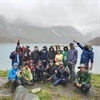

Small Group Size
Our batch sizes are capped at 15 for smaller treks with the trek leader and trekker ratio of 1:8. This ratio, in our years of experience, has proven to deliver the best trekking experience for individuals as well as groups. Capping the size of the group ensures individual attention to each trekker so that no signs of distress or need during the trek go unnoticed. It also helps to form a more cohesive cohort with better group energy which helps define the rhythm and pace of days on the trek. As you go higher up on the BRS scale, since the stakes are higher, expeditions have an even smaller group size with the ratio of expedition leader to climber set at 1:2.
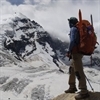

Qualified Trek Leaders
We follow a rigorous regime of hiring and training our experts in the field. Each trek leader is a certified mountaineer with years of experience in the field. In addition to their qualification, they also go through practical and situational training to tackle any and all kinds of sudden conditions that may present themselves on the ground. Being unpredictable is the core nature of the mountains but being ready for any circumstance as best as possible is a controllable asset that we try to nurture. Our field experts are also trained in basic medicine and first-aid response. Watch: Forerunners - The Making of A Trek Leader At Bikat Adventures
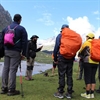

Guided Progression
Since Bikat Adventures is a learning-based organization, we help you climb up the ladder of difficulty within the sphere of outdoor adventure systematically. Our on-ground training modules are designed to handhold you through the upskilling process so that you are ready to take on bigger challenges.
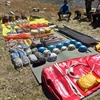

Equipment Quality and Check
All the gear used on our treks and expeditions is tried and tested, maintained for good quality, and is overall top-notch in quality and condition. We are continually looking to obtain the best of everything there is in the market so as to ensure optimum safety.
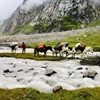

Support Systems
Along with the staff you see on-ground, we have a team of superheroes working in the background to give you the best experience possible. Our background team also comprises local staff from each area who know the region best. Having local support helps with studying the area, pre-planning, execution, and in receiving timely support in case of emergencies in these remote locations.
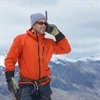

Communication
Our on-field staff is in constant contact with our teams based in primary locations so as to eliminate any avoidable delay in reaching additional help and support when required. We try to use the best tools for communication available, including satellite phones, in regions where they are not restricted.
What our customers Say
Cancellation Policy
Cash refund
Cancellations up to 60 days prior to departure date
Between 60 days upto 30 days prior to departure date
Between 30 days upto 10 days prior to departure date
Less than 10 days prior to departure date
Voucher refund
Cancellations up to 30 days prior to departure date
Between 30 days upto 15 days prior to departure date
Between 15 days upto 10 days prior to departure date
Less 10 days prior to departure date
- Cash refund is applicable only in case of bookings made without using any promotional offer code or Cancellation Vouchers or Discounts
- This is only a brief of cancellation terms. For finer details please refer Detailed Cancellation Policy.
Blog Posts
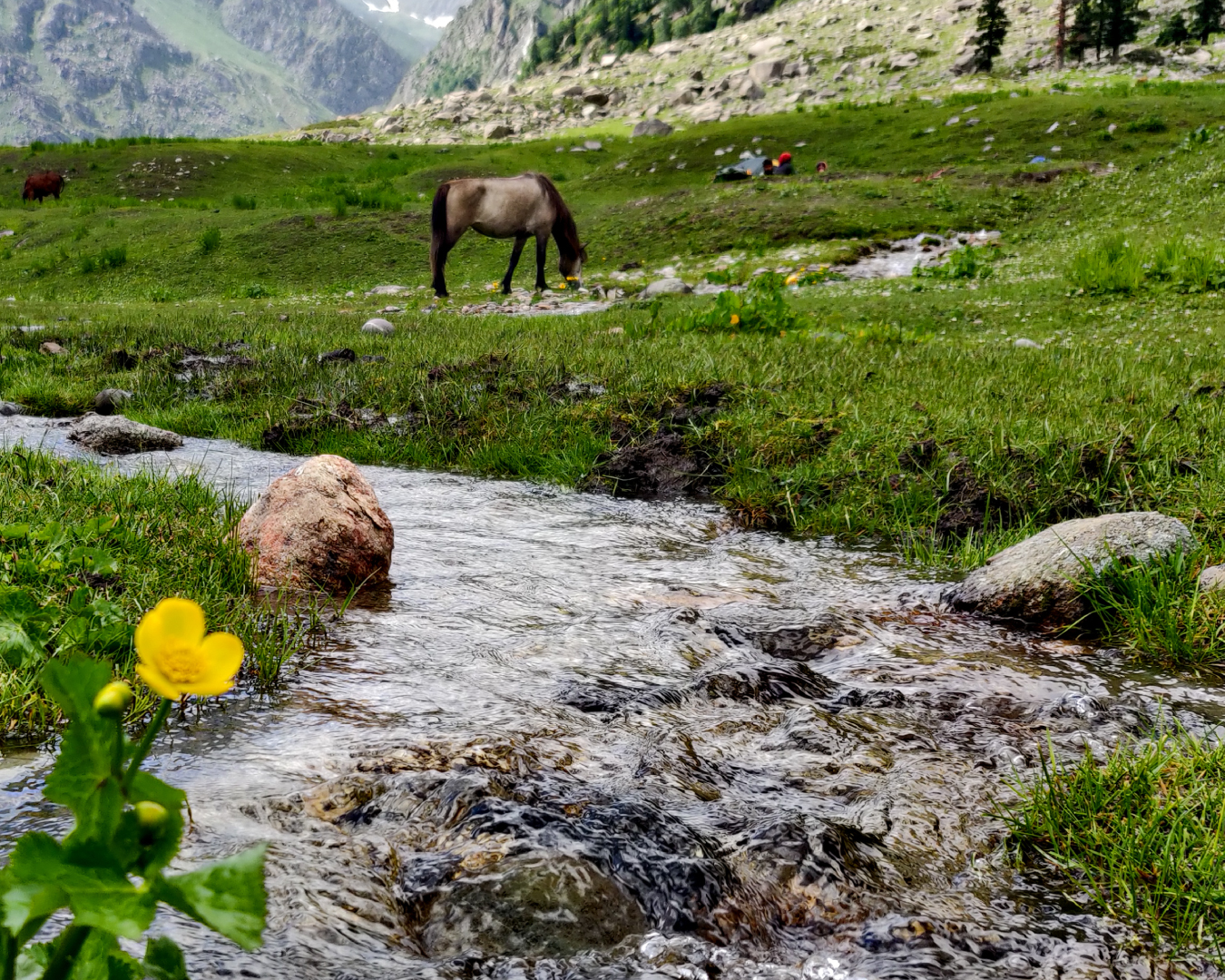
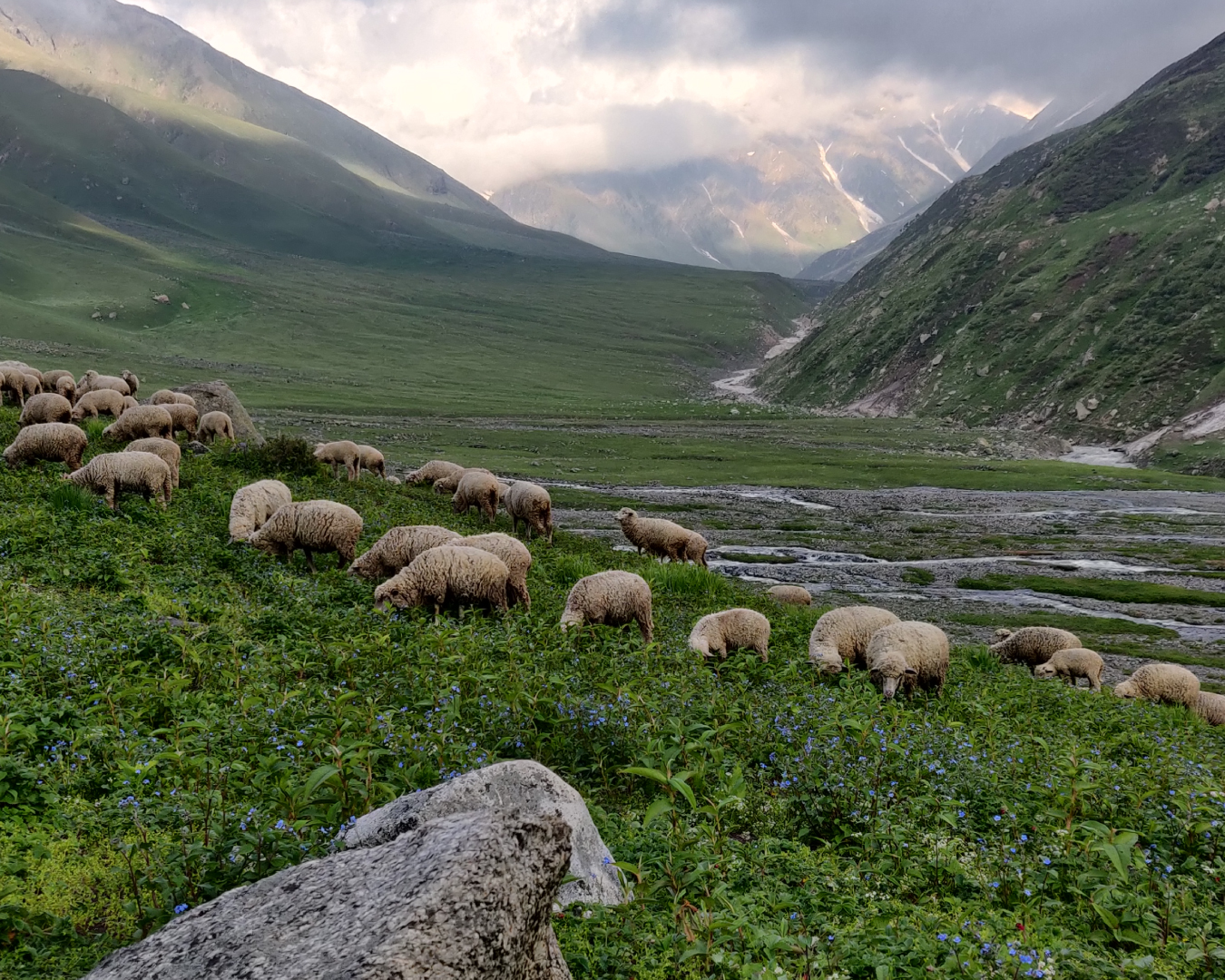
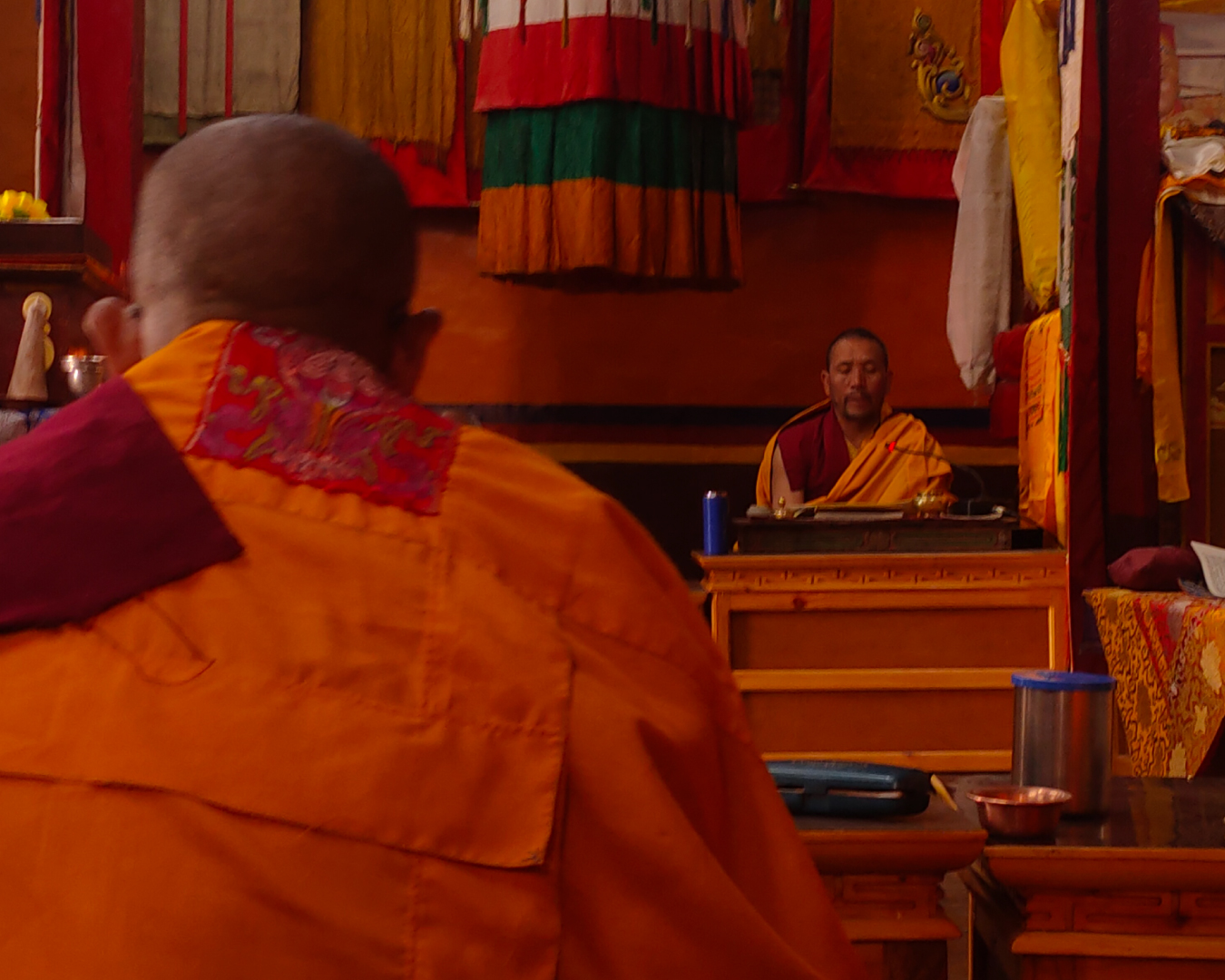
Similar Adventures
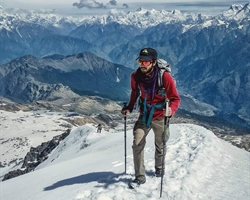
Pangarchulla Peak Trek
An amphitheater for the entire Garhwal Range
Uttarakhand
7 Days
BRS 5
4481 m
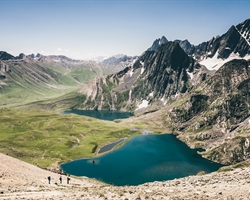
Kashmir Great Lakes Trek
Kashmir
8 Days
BRS 5
4175 m
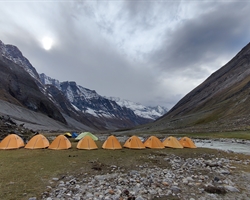
Warwan Valley Trek
Hidden Gem of Kashmir
Kashmir
8 Days
BRS 5
4410 m
